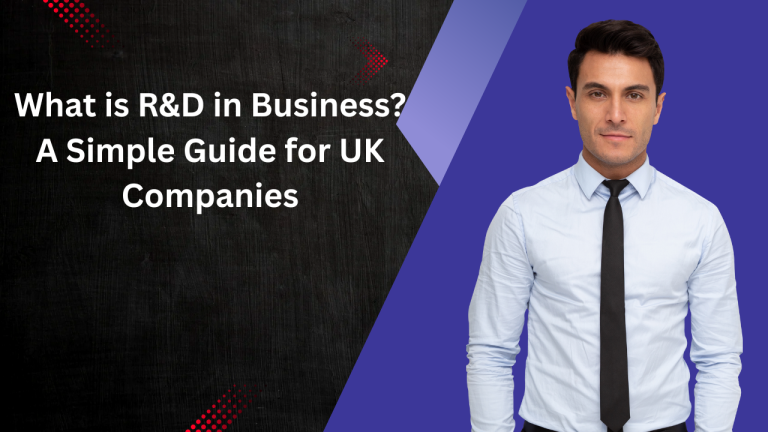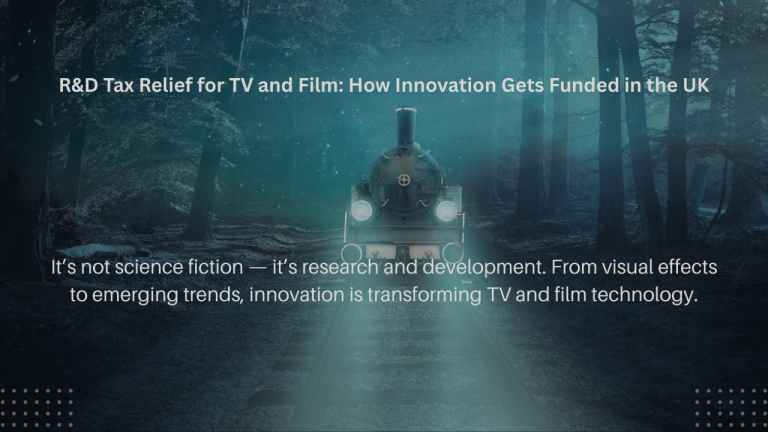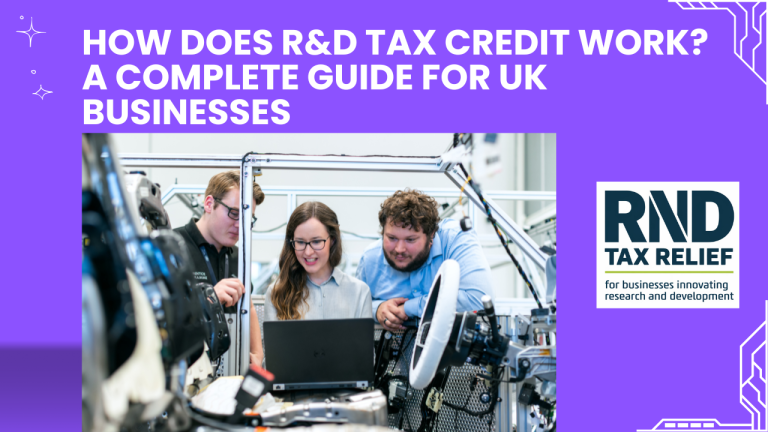Accountant or R&D Tax Specialist: Which Is Right for Your Claim?
If your business is carrying out innovation and you’re ready to claim R&D tax relief, you’ll face a common question: should you work with your accountant or bring in an R&D tax credit specialist?
On paper, both options seem similar they deal with tax and finance. But when it comes to R&D tax credits, the difference between the two could be the success or failure of your claim.
In this article, we break down the key differences, weigh up the pros and cons, and help you make the right choice for your business.
What’s the Difference Between an Accountant and an R&D Tax Specialist?
Accountants: General Tax Experts
Accountants are essential to the financial health of most businesses. They handle everything from preparing accounts to tax planning and compliance. They know how to keep your business financially sound and make sure you’re staying on the right side of HMRC regulations.
Most accountants can assist with:
- Annual accounts and tax returns
- Corporation tax and VAT
- Budgeting and cash flow planning
- General tax efficiency advice
But R&D tax credits are not your average tax relief.
The R&D tax credit scheme is complex. It’s based on strict criteria, technical definitions, and evolving HMRC guidance. Most generalist accountants don’t have the specific training or technical background needed to build a robust, compliant R&D claim.
R&D Tax Specialists: Focused on Innovation Funding
R&D tax credit specialists focus entirely on helping businesses identify eligible projects, calculate qualifying costs, and prepare compliant documentation. They combine financial expertise with technical knowledge often working alongside engineers, developers, or scientists.
A good R&D tax specialist will:
- Identify eligible projects and activities under HMRC’s definition
- Interpret technical uncertainty and scientific advancement
- Calculate qualifying expenditure
- Prepare technical reports and financial documentation
- Ensure full compliance with current HMRC legislation
They understand how HMRC assesses claims, what language they look for, and what red flags to avoid.
Why Choosing the Right Support Matters
HMRC Has Increased R&D Scrutiny
In recent years, HMRC has tightened its grip on R&D claims. The number of enquiries has risen sharply and many businesses that submitted genuine claims have found themselves under review due to poor documentation or errors.
A claim submitted without proper evidence or understanding of the criteria could lead to:
- Lengthy HMRC enquiries
- Delayed or reduced tax credits
- Financial penalties
- Damage to your reputation or future eligibility
You Need Accuracy, Clarity, and Proof
To secure R&D tax relief, your claim must clearly show:
- The project met HMRC’s definition of R&D
- You faced technical or scientific uncertainty
- You incurred qualifying costs (e.g. staff, software, materials)
- You’ve kept adequate records to support the claim
This isn’t just about filling in the form — it’s about building a solid narrative and financial case that aligns with HMRC’s strict rules.
Accountant or R&D Specialist: Pros and Cons
Pros of Using Your Accountant
- Convenience they already handle your finances and taxes
- Cost-effective often bundled into existing fees
- Trust long-standing relationship with your business
However, most accountants don’t specialise in R&D claims. They may only submit a handful a year, or rely on templates without understanding the deeper technical elements. This can lead to underclaimed relief or worse, compliance issues.
Pros of Using an R&D Tax Specialist
- Technical and financial expertise they understand the science and the tax rules
- Maximised claim value – they know what costs qualify and how to include them
- Compliance focused – reduced risk of HMRC enquiry
- End-to-end support – from project scoping to submission and beyond
Specialists typically work on a success based fee, so they’re motivated to get your claim right and ensure you receive the full benefit you’re entitled to.
Real-Life Examples
Example 1: Tech Startup – Used Accountant, Faced Enquiry
A software company in Manchester asked their accountant to help with an R&D claim. The accountant, though experienced in tax returns, wasn’t familiar with HMRC’s definition of technical uncertainty. The claim included routine work and vague justifications.
Six months later, HMRC launched an enquiry. The company had to pay back part of the claim, plus interest and missed out on valuable funding during a crucial growth phase.
Example 2: Manufacturing Firm – Used Specialist, Claim Approved Smoothly
A precision engineering company in Birmingham worked with an R&D tax relief specialist. The specialist interviewed their engineering team, drafted a detailed technical report, and identified qualifying costs the accountant had previously overlooked.
The claim was submitted with full supporting documents, and HMRC processed it within 4 weeks. The company received £87,000 in tax relief and now submits yearly claims through the same specialist.
FAQs
Can any accountant do R&D tax claims?
Technically, yes. But most accountants don’t have specialist knowledge of R&D tax legislation. A good accountant might offer a basic claim service, but a specialist can ensure your claim is accurate, maximised, and fully compliant.
What does an R&D tax specialist actually do?
They identify eligible projects, gather technical and financial evidence, and prepare your claim in line with HMRC’s latest rules. They often work with both technical and finance teams to ensure nothing is missed.
Are R&D consultants regulated?
There is no formal regulation (yet), but reputable R&D consultants follow professional standards and stay up to date with HMRC policy. Always ask about their track record, case studies, and compliance processes.
What happens during an HMRC enquiry?
HMRC will ask for evidence to support your claim. This can include technical justifications, calculations, and timesheets. If your claim isn’t well-documented, you could lose part or all of the relief and face penalties.
Final Verdict: Which Should You Choose?
If your R&D activity is straightforward and you’re confident in your accountant’s knowledge of the scheme, it might be reasonable to ask them to prepare your claim.
However, if:
- You’re in a technical or fast-moving industry
- Your claim value is significant
- You want to avoid HMRC risk
- You’ve never claimed before
- You’ve faced a past enquiry
then it makes far more sense to use an R&D tax credit specialist.
The right specialist will understand your sector, support you through the whole process, and help secure the relief your business deserves while keeping you compliant.
Get Help from an R&D Tax Relief Specialist
If you want peace of mind, accuracy, and maximum return from your R&D tax credit claim, speak to a specialist today.
Our team at R&D Tax Relief UK has helped hundreds of UK businesses like yours secure funding through HMRC’s scheme with a strong focus on compliance, documentation, and client success.
Book your free consultation here Let’s build your R&D claim the right way.
Learn more about uk r&d tax credits





